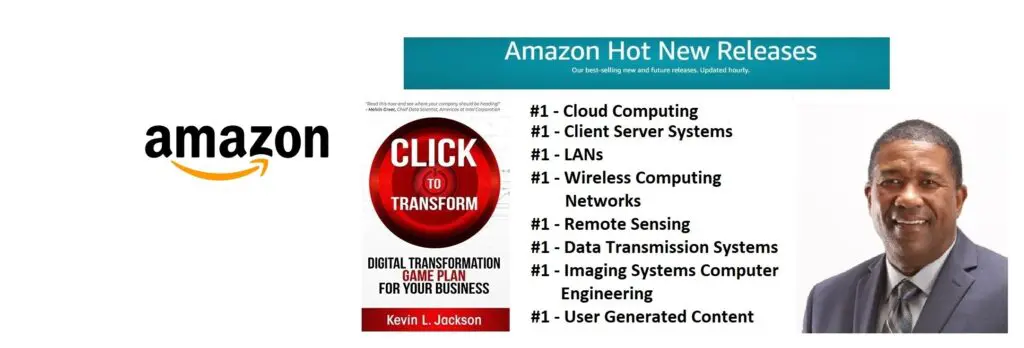Twitter Feed
Leading Federal Integrators Address Tactical Cloud Computing
Yesterday during the first annual Government IT Conference and Expo, tactical cloud computing was cited as a critical component within this new paradigm. Joining me to address the issue were:…
Carpathia Creates Government Solutions Business Unit
In a strong statement of focus, Carpathia Hosting has announced the formation of Carpathia Government Solutions, a unit dedicated to providing solutions specifically for federal civilian and defense agencies. This…
INPUT FedFocus 2010
Please join me at the 7th Annual FedFocus Conference, November 5, 2009, at the Ritz Carlton in McLean, VA. This conference has been designed to provide crucial information on upcoming…
Dataline, Lockheed Martin, SAIC, Unisys on Tactical Cloud Computing
I’m proud to announce that representatives from Lockheed Martin, SAIC, and Unisys will join me in a Tactical Cloud Computing “Power Panel” at SYS-CON’s 1st Annual Government IT Conference &…
GSA, DoD and NCOIC to Collaborate on Government Cloud Computing
Yesterday, during the NCOIC Cloud Computing Workshop, collaboration seemed to be the focus as Katie Lewin, GSA Cloud Computing Initiative Program manager, and Dan Risacher, DoD Cloud Computing Storefront project…
FederalNewsRadio Highlights Government Cloud Computing
Last week’s Apps.gov announcement was the latest steps in the government’s “at the quick step” march into cloud computing. FederalNewsRadio, a Washington metro area media fixture, highlighted the event with…
NCOIC Officially Launches Cloud Computing Working Group
On Wednesday, 9 September 2009 the Network Centric Operations Industry Consortium (NCOIC) Technical Council formally approved the creation of a Cloud Computing Working Group (CCWG). Organizationally this new working group…
1 Billion Mobile Cloud Computing Subscribers !!
Yes. That’s what I said! A recent EDL Consulting article cites the rising popularity of smartphones and other advanced mobile devices as the driving force behind a skyrocketing mobile cloud…
NCOIC Holding Full-Day Cloud Computing Workshop
The Network Centric Operations Industry Consortium will be holding an all day Cloud Computing Workshop on September 21, 2009 in Fairfax, VA. Open to the public, this workshop will focus…
Pentagon Reviews Unisys Stealth
According to a Newtworkworld.com article, the United States Joint Forces Command (USJFC) is currently evaluating Unisys Stealth technology at the Joint Transformation Command for Intelligence (JTC-I) in Suffolk, Virginia. “Unisys…
4 Factors Driving Digital Transformation ROI
The critical assessment factors for cloud ROI risk probability are the following:
- Infrastructure utilization
- Speed of migration to cloud
- Ability to scale business/mission processes
- Quality delivered by the new cloud-based process
These four factors directly drive digital transformation ROI because they affect revenue, cost, and the time required to realize any investment return. Differences between actual and projected values in these metrics indicate a likely failure to achieve the desired goals.
Although business alignment is always a primary digital transformation drive, ROI remains a key decision component. This metric should, however, be addressed from multiple vantage points to include cloud workload utilization, workload size versus memory/processor distribution and the virtual hardware instance to physical asset ratio.
Value delivered through innovation should also be part of the business value calculation. Value can be delivered through operational cost reductions, optimization of resource capacity, and a reduced total cost of ownership. Business process time reductions, product quality improvements and customer experience enhancements are also useful outcomes.
Security Controls
Business/mission model changes can also introduce operational risk. Acceptance of these risk are based on executive risk tolerance. Their risk mitigation decisions result in the implementation of security controls. A control will restrict a list of possible actions down to what is allowed or permitted by the organization. Encryption, for example, can be used to restrict the unauthorized use of data.
The security control continuum extends over three categories:
- Management (administrative) controls: policies, standards, processes, procedures, and guidelines set by corporate administrative entities (i.e., executive to mid-level management)
- Operational (and physical) controls: operational security (execution of policies, standards and process, education, and awareness) and physical security (facility or infrastructure protection)
- Technical (logical) controls: Access controls, identification and authentication, authorization, confidentiality, integrity, availability, and non-repudiation
They also encompass the following types:
- Directive controls: often referred to as administrative controls, advise employees of the behavior expected of them during their interfaces with or use of information systems
- Preventive controls: include physical, administrative, and technical measures that preclude actions that violate policy or increase the risk to system resources
- Deterrent controls: use warnings and a description of related consequences to prevent security violations
- Compensating controls: Also called an alternative control, a mechanism that is put in place to address security requirements deemed impractical to implement
- Detective controls: Refer to the use of practices, processes, and tools that identify and possibly react to security violations
- Corrective controls: involves physical, administrative, and technical measures designed to react to a security-related incident in order to minimize the opportunity for an unwanted event to reoccur
- Recovery controls: restore the system or operation to a normal operating state once integrity or availability is compromised
The costs associated with the implementation of any security control should be weighed against the value gained from digital transformation business/mission process improvements.
Would you like to learn more about digital transformation innovation? Pick up a copy of my new book, Click to Transform!Â

Cloud Computing
- CPUcoin Expands CPU/GPU Power Sharing with Cudo Ventures Enterprise Network Partnership
- CPUcoin Expands CPU/GPU Power Sharing with Cudo Ventures Enterprise Network Partnership
- Route1 Announces Q2 2019 Financial Results
- CPUcoin Expands CPU/GPU Power Sharing with Cudo Ventures Enterprise Network Partnership
- ChannelAdvisor to Present at the D.A. Davidson 18th Annual Technology Conference
Cybersecurity
- Route1 Announces Q2 2019 Financial Results
- FIRST US BANCSHARES, INC. DECLARES CASH DIVIDEND
- Business Continuity Management Planning Solution Market is Expected to Grow ~ US$ 1.6 Bn by the end of 2029 - PMR
- Atos delivers Quantum-Learning-as-a-Service to Xofia to enable artificial intelligence solutions
- New Ares IoT Botnet discovered on Android OS based Set-Top Boxes
